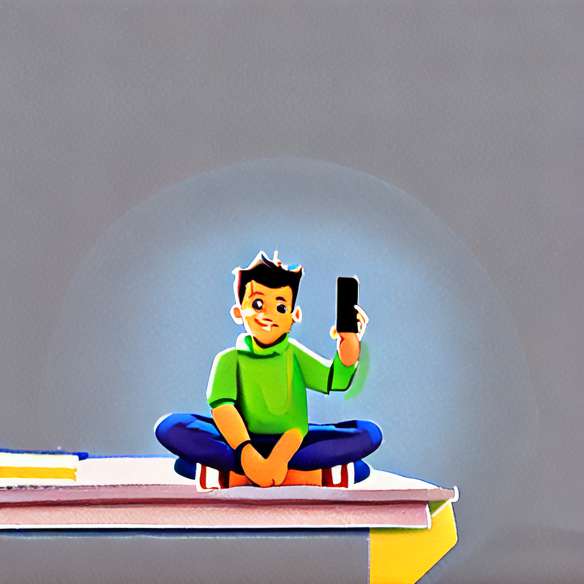We are the children of TV

The TV is ubiquitous ... in the living room, the kitchen and the bedrooms. Certainly, there are almost no more arguments. The child can watch his reality show, the mum can bask in front of his favorite movie and dad can watch his football game ... Everyone is quiet.
But there are advantages but also disadvantages. The proof...
In 2009, 4-10 year olds are more addicted to television than 11-14 year olds: 2h12 against 2h09. Their consumption has increased by seven minutes since 2000. On the other hand, the consumption of 11-14 year olds has decreased by twelve minutes. The time spent watching television for 4-10 year olds subscribing to a wider offer (thematic pay channels, regional or foreign channels ...) is even up: 2h29 in 2008. Compared to children who access a limited offer it's sixteen minutes more. (Source: Médiamat-Médiamétrie).
The influence of television on children has several factors: the length of time they spend in front of the television, their age, their personality, watching television alone or accompanied, and discussing the content being watched.
At what age can a child watch TV?
In general, television is not suitable for children under three years old. Passive exposure can hinder its development. In spite of himself, the child will be solicited and stimulated by a flood of images and sounds that will make him passive, delay his language, agitate him or give him troubles sleep and concentration.
From three years, the child can watch educational programs with, of course, the agreement of Dad and mum. It is necessary to adopt the duration and the mode of consumption of the television then to choose the type of programs and the schedules. Before four years, it is preferable that he does not spend more than thirty minutes in front of the television. The free time of young children should be spent playing, reading, exploring nature, learning music or playing sports.
Between 3 and 6 years old, the viewing sessions must be short ... less than ten minutes. The family must select the programs offered to the child. It is at this age that he will build his sensitivity and some images may have an impact on the child: anxiety, nightmares, refusal to go to bed ... The time spent in front of the television screen must not exceed one hour.
Between 6 and 10 years, children begin to make the connection between the real and the unreal. In general, they are able to analyze, comment, understand and imitate. It is necessary to explain to him that he must not reproduce certain gestures seen for example in certain films ...
Between 10 and 12 years, children want to access images independently. The choice of programs becomes more diversified. They always want to look at programs aimed at young people but also those who are, for example, advised against at least 10 years old. Parents must accompany him in the choice of these programs. At the beginning of theadolescencehe may be attracted by some violent content. Dialogue and listening are important.
Be it verbal, physical, psychological or sexual, violence transcribed through images can lead some minors to stress, anger, shame, anxiety, problems falling asleep ... Parents must keep an eye on the programs. Several studies show that so-called violent programs increase aggressive behavior, can make people insensitive to the violence and suffering of victims, can increase fear and the feeling of living under constant threat.
Between 15 and 24, they watch television offline, on other screens than the traditional post, and out of home, nearly one in four young people conciliating these three practices, according to a study published Thursday (March 10) by Médiamétrie. The desktop or laptop computer is the second screen. One in three young people between the ages of 15 and 24 is watching TV on a computer or laptop. The development of equipment promotes these new ways of watching television. 1.2 million people occasionally register for programs. The catch-up TV (television catching up when one missed a program) continues its progression: the young people are nearly 4 million to have recourse to it.
A family needs to know the importance of youth signage.It corresponds to the signals -10, -12, -16 and -18 and to the mention "not recommended for less than ..." or "Prohibited to less than ..." and to know that there is an automatic locking device for programs not recommended for - 18 years old.
Whatever your age, you should avoid turning on the television during the times of sharing (family party, meals ...)
And television in the bedroom ?
The installation of a television in the bedroom A child should be outlawed for two reasons: he may lose touch with family life and you will not be able to monitor the programs. The number of children having a television in their bedroom is nevertheless constantly increasing. Television can also become a source of conflict ... And why? Studies claim that children, who own a television in their bedroom, had lower grades as they slept less.








